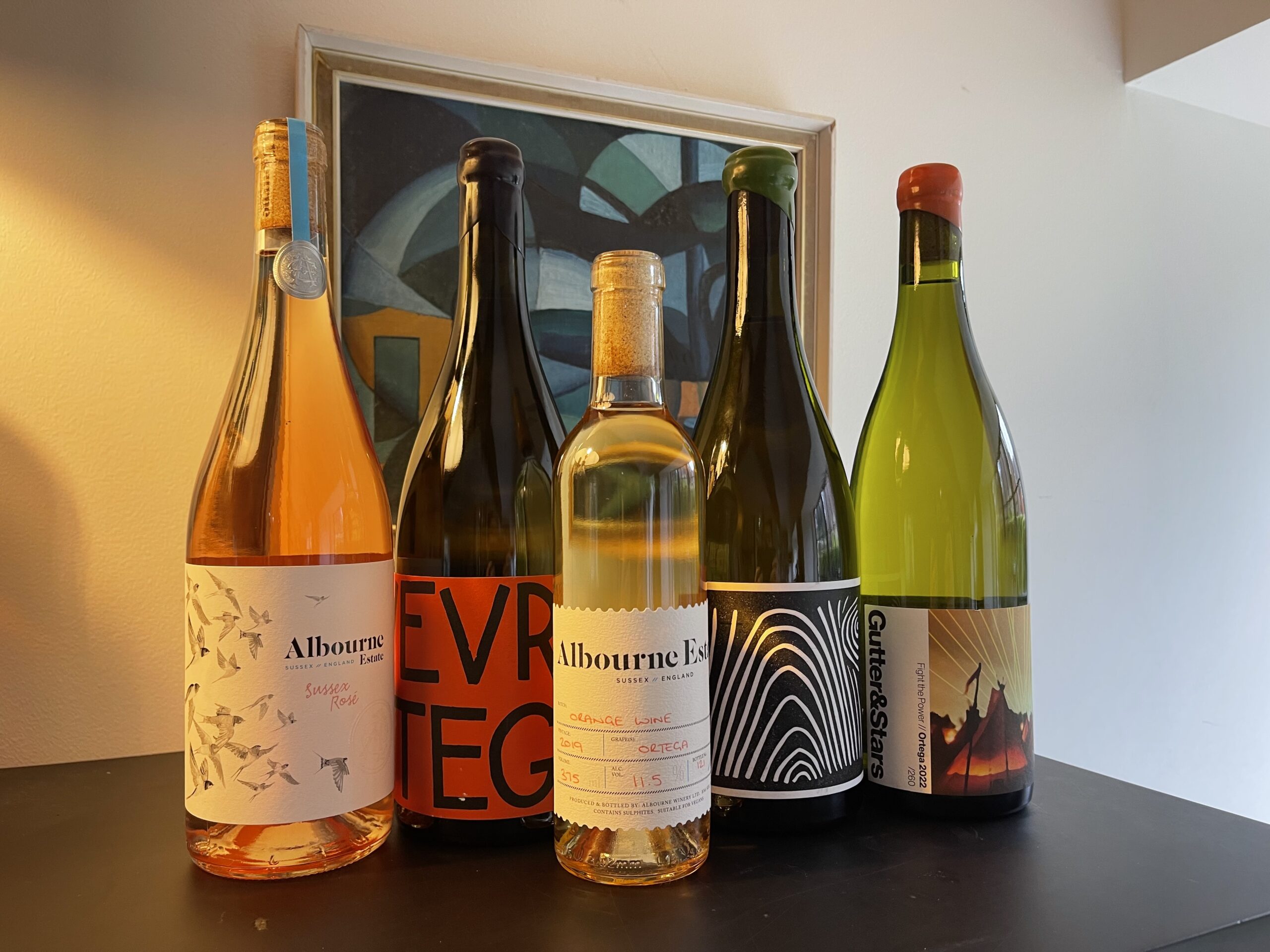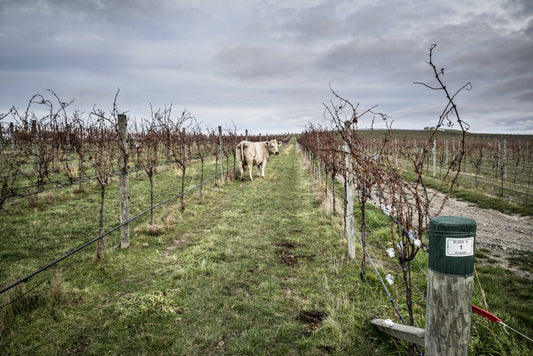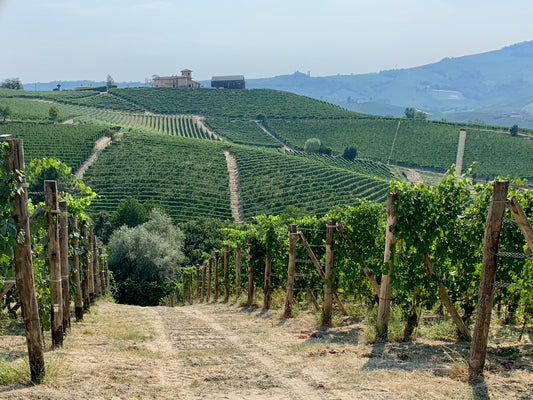| The often-dismissed crossing, once a modest staple of UK wine is being championed by a new generation for its versatility and texture |
|
A growing number of UK winemakers prize English still-white wines made from Ortega – enthusiasts say they rate the texture, taste and versatility of this German-made post-war crossing. Still wine makes up a third of all UK wine production, and demand is growing. Hybrids and crosses such as German-developed Ortega grow well in our damp, cold climate. Hybrids are environmentally friendly: they need fewer chemicals because they contain disease-resistant American vine DNA. Ortega, a crossing, can cope with harsh frost and never struggles to ripen here in England. But there is a problem. Hybrids and crosses are not sexy. Crosses can supply high yields without a loss of quality and hybrids are disease resistant, a huge selling point. Downy and powdery mildew remain a threat to the vineyards of Europe. Hybrids were planted across France before a 1934 crackdown on overproduction. Yet cash-strapped farmers understood the advantages. Poorer regions like Cévennes, where vines struggle to ripen, produced ‘rich, flavourful’ hybrid wines, as the ampelographer Pierre Galet noted in his 1978 work Grape Varieties and Rootstock Varieties. Ortega specialist Josef Engelhart says the variety is losing ground in his native Germany thanks to the warming continental climate. His Ortega vines are fully ripe by August. In the UK, our cold weather means most varieties ripen later, if at all. Not so Ortega which doesn't suffer from a surplus of harsh malic acid either, a problem for many varieties grown in English soil. Ortega was developed by Hans Breider in 1948 at the Bavarian State Institute for Viticulture and Horticulture in Würzburg. Its parents were Müller-Thurgau (itself a crossing of Riesling and Madeleine Royal) and Siegerrebe (Madeleine Angevine and Gewürztraminer). Breider named his creation after the Spanish philosopher José Ortega y Gasset, who feared the ‘tyranny of the majority’ and its threat to freedom of thought.
Gal and Adrian Pike of Westwell. Photo credit: Westwell Wine Estates
Jose Quintana, Winemaker at Vagabond's urban winery in Battersea. Picture credit: Lisse Garnett |
| Will Davenport has been growing it in his Kent and Sussex vineyards since 1991. He fostered an evangelical love of Ortega in former wine-making protégés Adrian Pike of Kent-based Westwell, and José Quintana of the urban winery Vagabond in London’s Battersea. Both rate its ability to express terroir. And both appreciate the smorgasbord of flavours and textures it is capable of; Quintana credits Ortega's Riesling ancestry for its versatility. ‘It has a broad range of compounds that respond well to all kinds of winemaking techniques,’ he says. He experiments with stems, oak and a Sherry-style solera system to age his Vagabond Solena under flor (the film of yeast cells that forms on the surface of sherry and some other wines as it ferments, and imparts a distinctive salty, doughy, savoury tang). |
|
The Westwell Wines estate is located on the chalk slopes at the foot of the North Downs in Kent. Photo credit: Westwell Wine Estates Pike credits Westwell’s chalky terroir for the saline minerality of Westwell Ortega. He rates it far above Britain’s dominant still-white grape, Bacchus. ‘I can't understand why everyone is planting Bacchus. which is volatile and aromatically in your face. Ortega has a sense of place. Bacchus doesn't show vintage or terroir.’ Ortega has a very distinctive flavour palate. Having tasted some 15 examples, of which five were aged, I discovered bitter orange marmalade, saline, rose and camomile notes were universal. A deliciously distinctive, moreish, pithy texture was also evident throughout. Not everyone is a fan. Alison Nightingale, owner of Albourne in Hampshire, is unimpressed. She resents the high cost of harvesting the ‘tricky to manage, sticky tendrilled Ortega’ as she put it. There’s another sticking point: Ortega has no real traction with the British wine-drinking public. Simon Hawkins of wine merchant Hawkins Brothers, which specializes in English wine, says it can be a hard sell. ‘It's a delicious Riesling-type grape, one of the originals like Schönberger or Reichensteiner. The problem is, people have no idea it even exists.’ |
| Lisse Garnett was a BBC broadcast journalist before turning to drink. Years in pubs and hospitality financed her education, little did she know her true calling was right there all along. Plumpton, WSET and specialist wine importing followed. Today she writes. |






